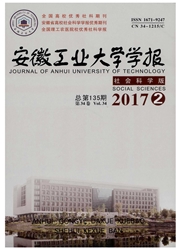

 中文摘要:
中文摘要:
以2009—2015年沪深A股上市公司为研究样本,基于信号传递理论和信息偏好视角,考察分析师跟踪与内部控制缺陷之间的关系以及两者的相互作用对机构投资者持股决策的影响,研究结果表明:无论从静态角度还是从动态角度看,存在内部控制缺陷的公司其机构投资者持股比例较低,但有内部控制缺陷而分析师跟踪人数较多的公司其机构投资者持股比例依然很高,分析师跟踪可以有效减弱内部控制缺陷带给机构投资者的负效应;企业内外部信息对于机构投资者的决策具有不同的信号价值和决策影响力,投资者的决策认知和信息取向存在偏好;分析师跟踪的信号价值远远超过了内部控制缺陷对机构投资者持股的影响。
 英文摘要:
英文摘要:
Taking A-share listed companies in Shanghai and Shenzhen from 2009 to 2015 as a sample,this paper makes a research on the relationship between the analyst following,internal control deficiency and interaction influence on the institutional ownership based on the theory of signal transfer and the perspective of information preference. The result indicates that from the static and dynamic perspectives,the proportion of institutional investor shareholding is relatively low in companies with internal control deficiency,but in similar companies with more analysts tracking,the institutional investor shareholding is still high,analysts tracking can effectively weaken the negative effects of internal control deficiency to institutional investors. The internal and external information concerning the enterprise has different signal value and decision making for institutional investors in decision-making,namely,the investors have preference to decision-making cognition and information orientation. The signal value of analysts tracking is far beyond the impact of internal control deficiencies on institutional investor shareholdings.
 同期刊论文项目
同期刊论文项目
 同项目期刊论文
同项目期刊论文
 期刊信息
期刊信息
